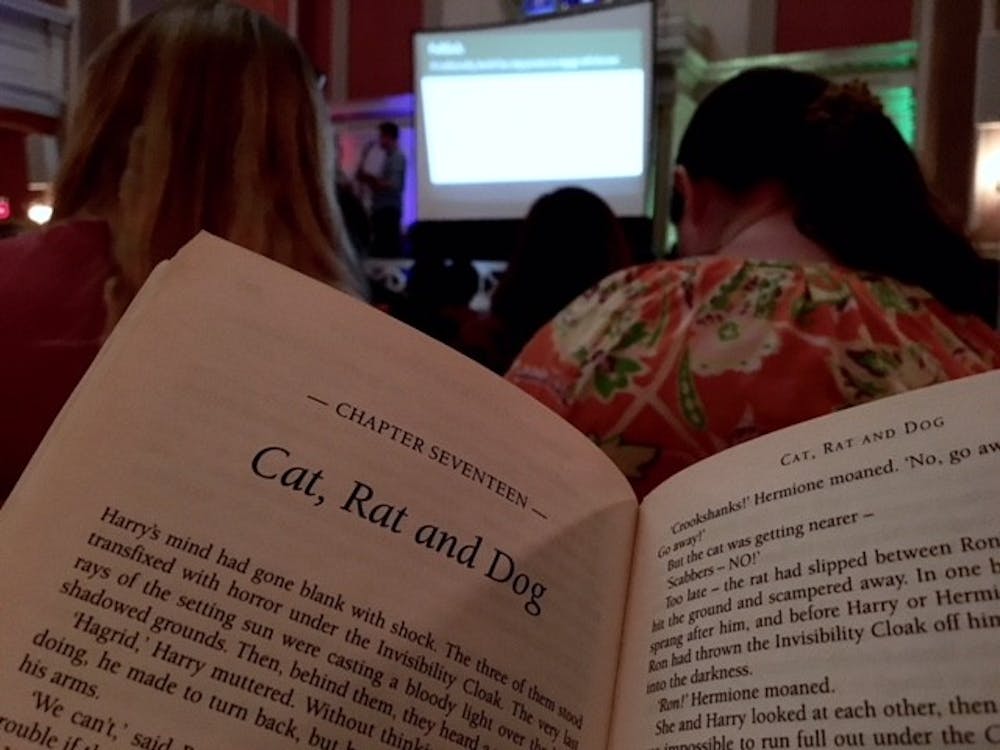I have a Bible on my bookshelf, but I never open it. I pray sometimes, but I don't believe in God. In ninth grade, I became a churchgoer after being raised with no particular faith, and I decided to get baptized. In the six years since then, I've gone to church sporadically, only ever with friends or on a special occasion. I identify as agnostic and love talking about all sorts of different religions, from Christianity to Confucianism.
Not having been raised to follow any particular religion, and also not having ever felt pressured into a belief system, I have a generally positive outlook on faith. Many close friends of mine find hope and security in their religions, and they are often thoughtful and wise because they've studied their beliefs. Institutionalized religion brings people together and fosters community. Any belief or moral system is going to hold some hypocrisies, so that's not unique to religion. People have done some terrible things in the name of their god, but others have done a lot to make the world better. Religion isn't inherently good or bad; it's a way of living that we can use in many different ways, harmfully or beneficially, publicly or privately.
My question, then, is more about faith for those of us who don't adhere to a particular religion. Without a doctrine, prophet or sacred text, what guides our faith? What determines our higher purposes or solidifies our moral codes?
I have no definitive answers, only conclusions I've drawn based on some experience with religion and that weird, instinctual feeling of knowing something to be true. For example, I know that life is valuable — human life, my own life, my family and friends and pets' lives. And I know that kindness, honesty and compassion are worthy pursuits. I believe in striving for forgiveness and radical empathy, because they're good not only for my own mental and spiritual health, but also for the world.
These ideas arise in plenty of religious teachings, but that's not where I learned them. As a nonreligious person, I don't have the same sort of tradition to turn to when forming my moral convictions. So, where does secular faith come from? What do nonreligious people have faith in, if not a higher power?
"Harry Potter and the Sacred Text" is a podcast that reads J.K. Rowling's "Harry Potter" series chapter by chapter and treats it as sacred. Let's be clear: It's not about worshiping any of the characters or believing that the story actually happened. The point is to expand the realm of what we call "sacred" to things that are usually secular, such as stories and our own experiences and relationships, and to build community around the shared experience of rigorous study. The hosts, Casper ter Kuile and Vanessa Zoltan (who is an atheist chaplain, by the way), study the novels in great detail, draw analogies within the text and to the real world, and try to learn from the stories. They offer blessings and engage in sacred reading practices, such as Lectio Divina and Floralegium. To someone who doesn't believe Biblical stories to be true either, the practices of studying the Bible and studying the "Harry Potter" series sound remarkably similar.
What does a Potterhead podcast have to do with a deep sort of faith? I don't believe that Rowling's stories actually happened, so how does it offer a moral standard, like the example that Jesus sets for Christians?
Community and compassion become the higher purpose on their own merit, rather than being deemed important by any sort of god. Or perhaps charity and generosity become the higher purpose. Or love or forgiveness or kindness. Whatever guides your moral compass and enables you to act in ways that better the world, those are the things you have faith in. Secular faith is tricky because it differs for everyone who subscribes to it. (The same happens with every organized religion, if less obviously.)
I don't have a church or a holy text to back my beliefs, but I do have many sacred stories, relationships and experiences that guide me. For me, that's as good as a religion.

